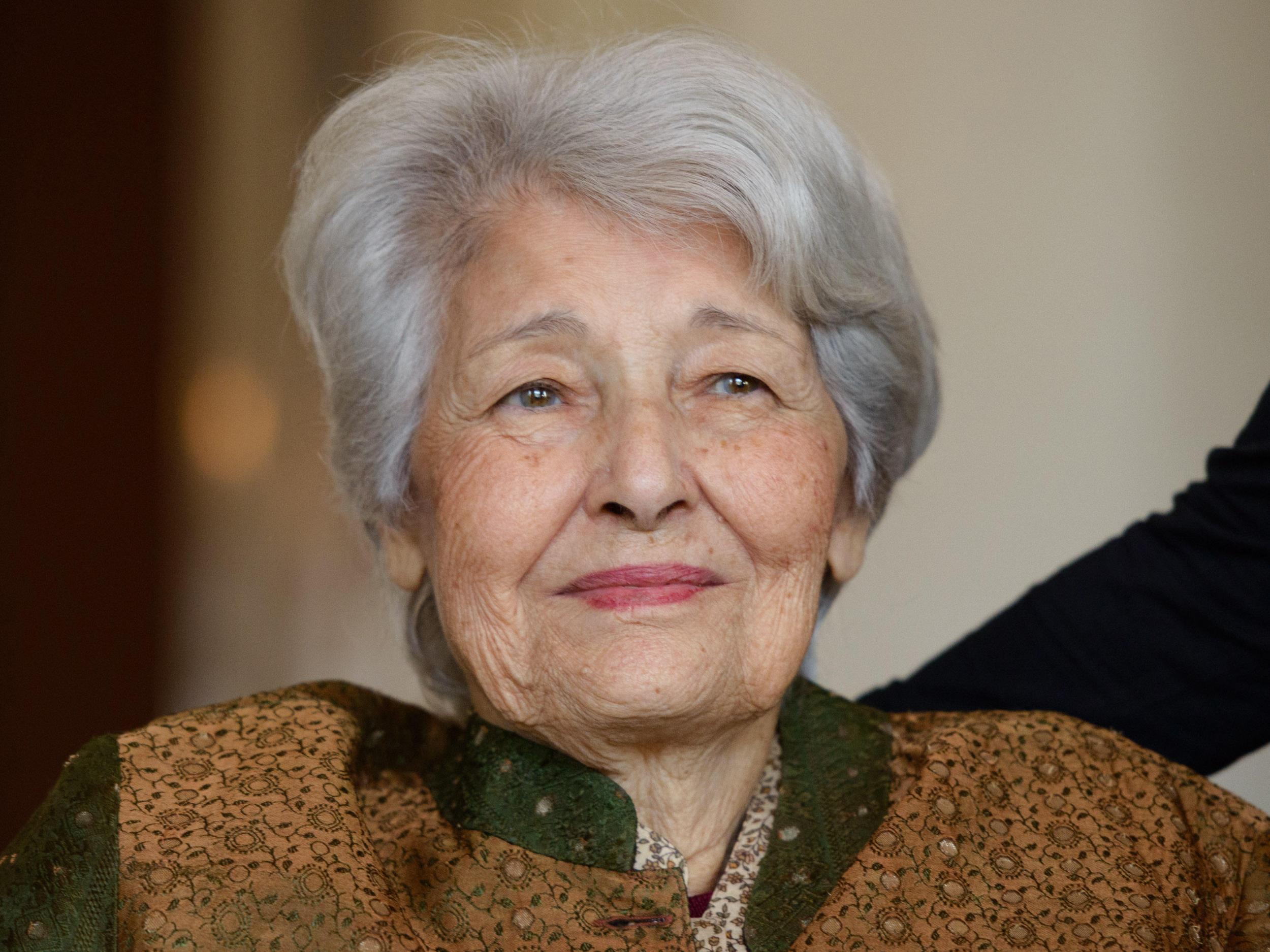Emily Nasrallah: Lebanese writer whose novels spoke of women, war and migration in her homeland
She used her mastery of the Arabic language to renegotiate the role of women in a society fragmented by conflict and waves of emigration

Your support helps us to tell the story
From reproductive rights to climate change to Big Tech, The Independent is on the ground when the story is developing. Whether it's investigating the financials of Elon Musk's pro-Trump PAC or producing our latest documentary, 'The A Word', which shines a light on the American women fighting for reproductive rights, we know how important it is to parse out the facts from the messaging.
At such a critical moment in US history, we need reporters on the ground. Your donation allows us to keep sending journalists to speak to both sides of the story.
The Independent is trusted by Americans across the entire political spectrum. And unlike many other quality news outlets, we choose not to lock Americans out of our reporting and analysis with paywalls. We believe quality journalism should be available to everyone, paid for by those who can afford it.
Your support makes all the difference.When she was awarded Germany’s Goethe prize last year, Emily Nasrallah said, “I am delighted to be so greatly appreciated, a village farmer like me from south Lebanon.”
Born in the town of Kfeir at the foot of Mount Hermon, Nasrallah, who died aged 87, would often refer to her humble roots as the unlikeliest place from which a woman could aspire to become a novelist – one from a Christian family whose works would become core texts in the nation’s classrooms at that.
“I was a village girl, a fallaha, and I used to help my father and mother in the fields,” she said. “It was hard work, and maybe this is what made me eager to learn, to get away from this harsh life.”
Before she’d turned six, the age from which children started school in the Thirties, she got her mother to get a sympathetic teacher to allow her to sit in on class. The teacher agreed on condition that “you disappear before the inspector comes.”
Although she said “I am not a feminist writer”, what was it but a sense of feminism that drove Nasrallah’s short stories, novels, essays and advocacy for women?
“In Lebanon the women rose up to fight for their rights – we didn’t use to have any rights in politics or society,” she said last year. “They banded together and formed unions. And they’re the ones who carried the torches.”
As a teenager for three years she remained in the third grade of elementary, only because there was no further class to graduate to – it was thanks to her uncle, a businessman who was in West Virginia, that she managed to secure a place in the International School of Choueifat in Beirut.
She started writing for a women’s magazine and then wrote regularly for a political title call Al Sayyad.
Teaching part-time in a girls’ school, she managed to eke out a living as she attended the American University of Beirut.
She graduated in 1958 with a degree in education and literature. The year before, Emily – nee Daoud Abi Rached – had married Philip Nasrallah, a chemist.
Her uncle’s move to the US was, perhaps, typical of the migration she observed as a child – people leaving town to chase dreams abroad. Lebanon is “a land that does not hold its people”, she recalled her grandmother saying of their war-torn country.
Leaving is a theme that informed her 1962 novel Birds of September, considered a classic of Arabic literature, it tells the story of Muna, a village girl, who watches boys leave, girls stay and a boy who stays and grows up to have the sensibilities of a girl, one writer observed.
She wrote seven novels, published short story collections and volumes of essays on pioneering women, both of the East and the West.
Among these is Days Recounted in which she recalls a journey that Philip’s uncle attempted to make to America in 1912. He was among 123 Lebanese passengers who perished in the Titanic.
Emily recalled the words of that uncle’s mother: “The seaweed grows where your body lies/ Precious pearls rest in your eyes/ Mermaids dance around you madly…”
Philip and Emily had no intention to emigrate and chose to stay put when the Lebanese civil war kicked off in 1975, with their four children, Ramzi, Maha, Khalil and Mona who survive them both.
The war raged on throughout the Eighties, the family’s home and possessions were destroyed but still they refused to go into exile.
In her 1998 novel A Cat’s Diary, she described the ravages of that period from the viewpoint of a tomcat.
She was very much an advocate of staying put as she was a chronicler of migration.
Nasrallah recalled a time when Philip, who encouraged her to write, had moved to Egypt to conduct his business while their children had set upon their own paths – she was asked how she managed.
She replied: “I gather them in my prayers.”
Nasrallah always wrote. She was one of the Beirut Decentrists, a group of women, which included Hanan Al-Sheikh, who wrote in Arabic, English and French and whose work “bore the unmistakable stamp of the civil war” as writer Miriam Cooke observed in 1987.
Cooke wrote: “They are decentred in a double sense, physically they were scattered over a self-destructing city; intellectually, they were scattered in separate spheres.”
Cooke credited Nasrallah with the “evolution of feminist consciousness that transformed male emigration into cowardice and female waiting/staying into honour”.
Emily Nasrallah, Lebanese writer, born 5 July 1931, died 14 March 2018
Join our commenting forum
Join thought-provoking conversations, follow other Independent readers and see their replies
Comments